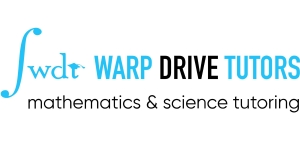Clearly this post is not intended for students who want to major in chemical engineering, many of whom will express profound disappointment that their AP® Physics C class delved less deeply into Faraday, Lenz, and flux integrals than they anticipated. You guys can skip this. But for those students who do not necessarily see science and math in their future, and moreover do not even enjoy the subjects (to put it lightly), it is sometimes hard for them to see the point of studying how to balance redox reactions or learning about electron orbital configurations. How is the shielding effect of a 1S orbital electron going to help them as an English major? They want to go to law school eventually, or turn their keen knowledge of baseball statistics into a career as a sports reporter. Admittedly, integrals and Newton’s laws won’t have many applications.
However the ultimate usefulness of the flux integral is not the point; you are not going to remember that, or your trig functions, much after you graduate. The point is to develop the analytic and quantitative aspects of your thinking. If you think of education as a pyramid, where the pinnacle is your PhD thesis on the economic theory of the Incas, the basis of that pyramid must include the development of a variety of different thinking modes. You have to develop creative writing skills, language skills, sixteenth century art criticism skills, and analytical/quantitative skills. Having a basis for an analytical thinking style has to be part of your fundamental education, even though you may not expressly use this mode of thinking as you go on in your education. In fact at the more competitive universities, freshmen are expected to take a year of calculus, a year of a physical science, and a year of a biological science, one of which must include a lab, regardless of their intended major.
Furthermore, with all due respect to those who may not want to go on in STEM, there are really all kinds of reasons to try and get as much from these classes as you can (besides boosting your GPA). To begin with, you really gain an appreciation of the world around you. In basic and AP Biology, for example, you study photosynthesis. Isn’t it pretty amazing that all of those trees and plants we have, in addition to looking pretty, also produce the oxygen we breathe? And for you kids who play in bands, have you ever stopped to consider how much a part electromagnetism plays a role in those screaming notes you get out of your Telecaster? Neural circuitry is rearranged when artists convey emotions (http://scienmag.com/mind-of-blue-conveying-emotion-affects-brains-creativity-network/), and all sorts of physics is associated with baseball.
Lastly, there are many who believe those who are good at math and science and tend toward an analytical way of thinking are necessarily also of a rigid personality. So, of course, if you are a creative and free-thinking spirit, math and science could not possibly be for you. Well, science is enormously creative! It is plausible that people believe otherwise because of a confusion between the word “analytical” and the words “anal” or “anal-retentive” the latter of which are not particularly flattering descriptions. In the world of Freud, “anal” refers to an early infantile stage (which we won’t get into here), which, if not outgrown, tends toward a very rigid personality. But the fact that you are analytical does NOT mean you are anal. Science is incredibly creative, and in fact rewards those who are not of a rigid disposition. Anybody who has ever worked in research can tell you this. The fundamentals you learn in basic science classes are simply tools that you can then put to use in all sorts of creative ways, and in ways that will require very imaginative and out of the box thinking. As an analogy, consider the initial study of a musical instrument. You must learn a bewildering amount of music theory (which itself is often very analytical) before you can play Rachmaninov’s neo-Romantic 2 Piano Concerto, and before you can compose original music of your own. Math and science are very much the same way! Don’t close yourself off to an incredible world of creativity and discovery because you feel algebra is too rigid. Besides, we’ll tutor you…
Be sure to give us a shout if you have any questions!
